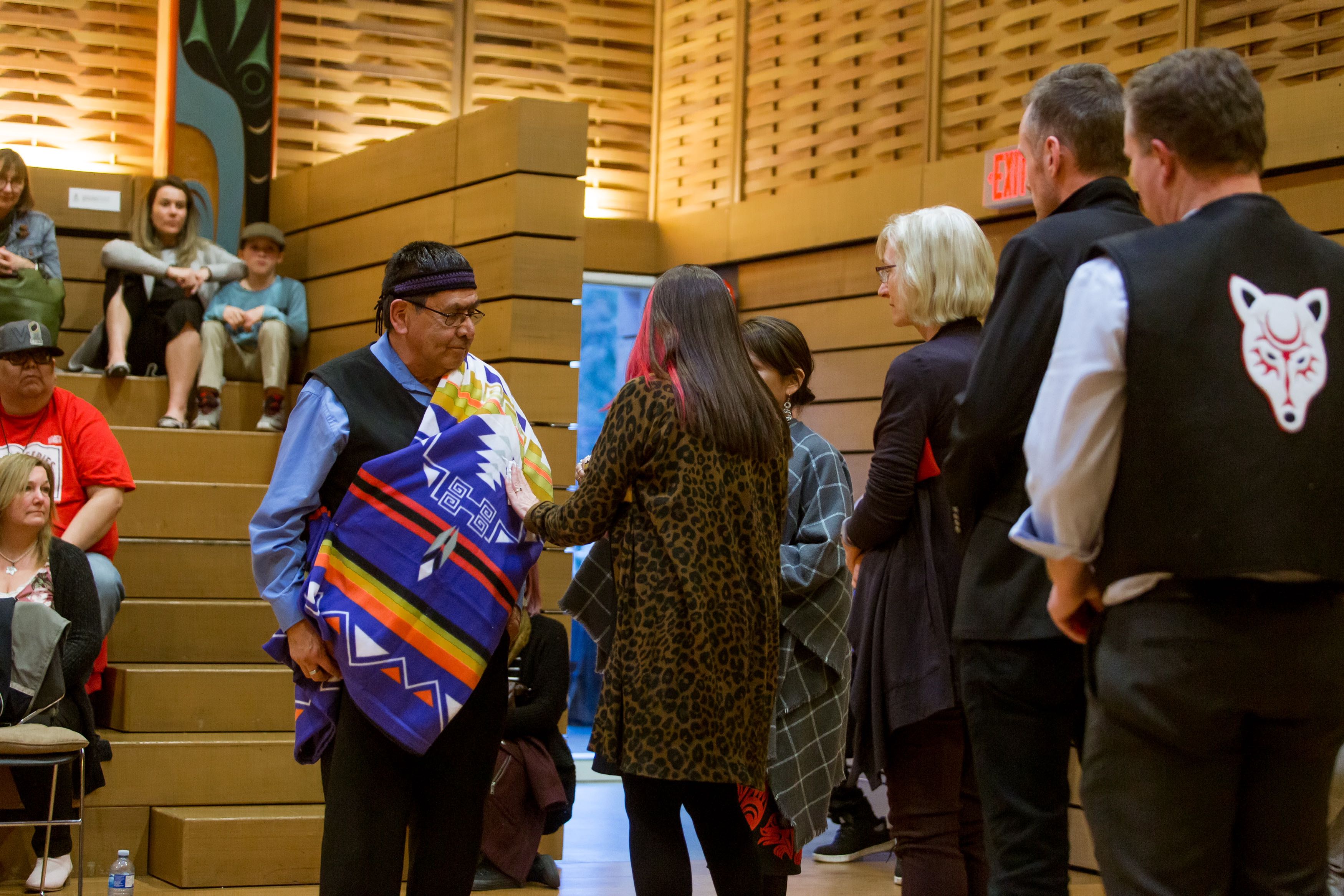New program, which debuted in the fall, emphasizes experiential and land-based learning

On Mar. 14, the UVic Indigenous Studies (IS) department formally celebrated the launch of their new major program — a bachelor degree in the study of Indigenous history, knowledge, and perspectives — with a ceremony that brought together Indigenous elders, UVic staff and faculty, and members from the community.
The major debuted in September, and was created to complement the existing minor — which has existed in the IS department for 10 years. The launch of the program coincided with the freezing of enrolment of the 20-year-old Indigenous Governance (IGOV) program, in light of controversy surrounding former program leader, Taiaiake Alfred.
To celebrate the bachelor’s degree inaugural year, the community gathered in the First Peoples House for a symposium on Indigenous women’s leadership and anti-violence activism, highlighting books written by associate professor in Social Work Qwul’sih’yat’maht (Robina Thomas) and assistant professor in Gender Studies waaseyaa’sin Christine Sy.
Thomas’s Protecting the Sacred Cycle and Sy’s contribution in Keetsahnak both chronicle the systematic displacement of women’s roles in Indigenous communities through gender violence, racism, and sexist colonial policies, while shedding light on various Indigenous women who showed leadership amid violence, racism and discrimination.
At the event, Lisa Kahaleole Hall, director of the program, said the two books reflected key themes of Indigenous Studies at UVic.
The major is open to both Indigenous and non-Indigenous students, and will guide students through Indigenous history with experiential and land-based learning techniques.
“As of March 2019, we have 18 students who have declared Indigenous Studies as their major and 44 students in the minor program. The enrollments for IS 101 and 201 surpassed expectations in both fall 2018 and spring 2019, and more sections were created to meet the student demand,” said the department in an email to the Martlet.
“The IS Program has been working to establish course equivalents for transfer students from other Canadian universities, and will be working with Camosun College to make a straightforward path for their Indigenous Studies students to enter our program.”
The major is open to both Indigenous and non-Indigenous students, and will guide students through Indigenous history with experiential and land-based learning techniques.
“Indigenous knowledges — our languages, ceremonies, ways of knowing, stories, governance systems, living histories — all come from our lived and complex relationships with the land, water, and natural world,” said Jeff Corntassel, Associate Professor of Indigenous Studies. “In this sense, land is the first teacher and Indigenous worldviews reflect this.”
Specifically, said Corntassel, the focus of courses in the IS major are about crafting relationships through land-based learning by honouring and respecting Indigenous protocols and practices, with insight into previous struggles of Indigenous nations.
“The goal is for students to achieve deeper understandings of how to better support and engage with Indigenous resurgence and self-determination in terms of vital reconnections to land, culture, and community.”
To ensure students learn the historical, political, and social issues faced by Indigenous people in Canada, those enrolled in the program will need to take classes that range from Indigenous arts, literature, and languages, to politics and law.
The launch of the IS major is the latest initiative UVic has taken in recent years towards reconciliation with Indigenous history and communities, and Canadian history.
The program is listed under the Faculty of Humanities, and relies on collaborative relationships with members in the faculties of Fine Arts, Education, Social Sciences, and Human and Social Development.
The launch of the IS major is the latest initiative UVic has taken in recent years towards reconciliation with Indigenous history and communities, and Canadian history.
Last March, UVic announced the creation of the world’s first Indigenous law degree — which also debuted in September. Later in the fall, the university held an event with elders, national and provincial leaders, and scholars to welcome the first cohort of 26 students to the law program.
And in March of this year, the federal government announced in their new budget an allocation of $9.1 million dollars that will go towards a national centre for Indigenous law and reconciliation at UVic.
Students can apply to the IS program on UVic’s website, and can also take the major with another major in a different faculty.






